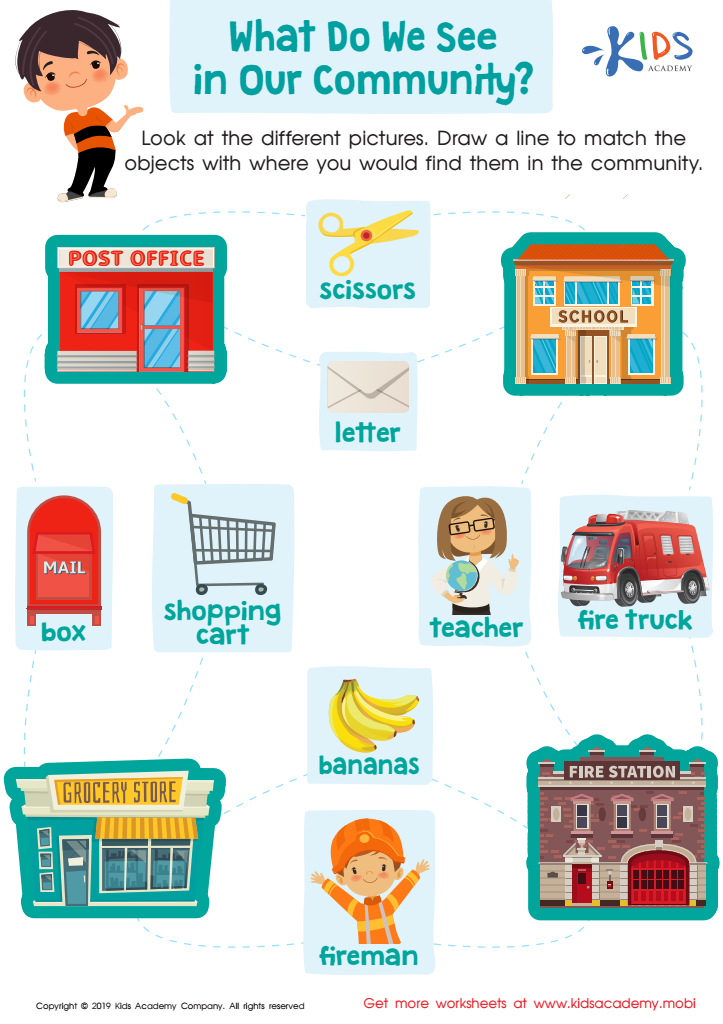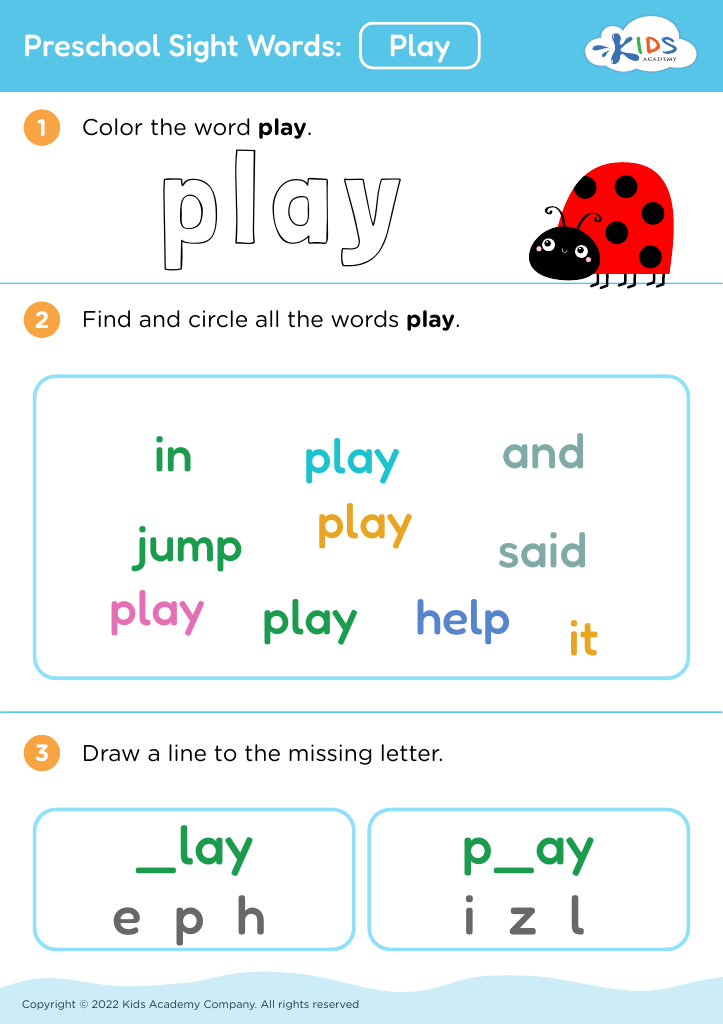Improving reading skills Building Vocabulary Worksheets for Ages 3-7
4 filtered results
-
From - To
Boost your child's literacy journey with our "Improving Reading Skills Building Vocabulary Worksheets for Ages 3-7". Tailored to young learners, these interactive and engaging worksheets are designed to enhance vocabulary retention and advance reading abilities. With fun activities such as matching words to pictures, fill-in-the-blanks, and word tracing, children will build a solid foundation in language skills. Our worksheets support early readers in developing stronger comprehension and phonics awareness. Ideal for parents and educators, these resources bring learning to life, ensuring kids ages 3-7 enjoy the process of mastering new words and reading fluency.


What Do We See in our Community? Worksheet
Fostering strong reading skills and building vocabulary in children ages 3-7 is crucial for their cognitive, emotional, and academic development. At this foundational stage, the brain is highly receptive to learning, making it the ideal time to instill foundational literacy skills. When children are exposed to a rich vocabulary early on, they are better equipped to express their thoughts, understand complex instructions, and engage meaningfully in their surroundings.
Reading and vocabulary acquisition are closely linked and contribute significantly to a child's success in school. As children learn to recognize and understand words, they become more confident and independent readers. This early proficiency in reading not only improves their academic performance in subjects like science, math, and social studies but also enhances their critical thinking and comprehension abilities.
Moreover, early literacy fosters a love for reading, which is associated with lifelong learning and personal growth. Developing these skills also contributes to better social and emotional intelligence, as children are able to articulate their feelings and comprehend the emotions of others. Involving both parents and teachers in these efforts creates a supportive and enriched learning environment, ensuring children have the best possible start in life. Therefore, investing time and resources in improving reading skills and building vocabulary during these formative years is essential for a child's overall development and future success.
 Assign to My Students
Assign to My Students










.jpg)














